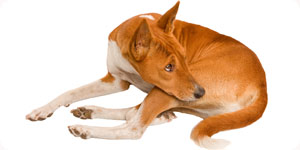
When deciding what to feed your dog, you have to remember that just like people, every dog has unique needs. Having said that, here are some basic rules to follow:
- Always make sure that your dog has access to plenty of fresh water!
- Not all dog food is the same! Choose a brand that is well known and considered quality. This is a perfect question to ask your veterinarian if you don’t already have something in mind.
- Now that you know what brand you want to buy, pay special attention to what specific formula is best for your dog’s age, weight and activity level.
- Feed your dog the same amount of food, once or twice per day. It’s not healthy to feed them a lot one day, and then not much another. Using a measuring cup will ensure that you are giving them what they need.
- Don’t over feed your dog! Even if they might still look hungry (certain breeds always want to eat, like labs!) it’s unhealthy. Just like for people, obesity can cause many health problems for dogs.
- Don’t underfeed your dog. It’s important that your dog is getting all the nutrition he needs. If you think your dog is too thin, consult your veterinarian and increase the amount of food he gets. Also consider switching to a higher protein food.
- If you switch from one dog food to another, do it gradually. Once a dog is used to something she can have digestive problems with a quick switch.
- Wet vs. Dry food? The nutrition is about the same in both types of food, so choose whichever is easiest for you. Often, feeding only dry food is less expensive, but for a finicky dog, wet food might be your only option. A little bit of both is really your best bet.
- Avoid table scraps. It can be tempting to give your dog the leftovers, but it usually leads to bad habits and obesity. If your dog is obese, cut out treats and stick to giving him raw vegetables as a substitute.
- Never feed your dog chocolate. For some dogs it can be toxic.
- Avoid giving your dog bones unless you buy them at a pet store. Your dog might love to chew on a bone from the local butcher, but be aware that bones can cause intestinal obstructions, vomiting, diarrhea and constipation.
- Pay attention to your dog’s eating habits. If he exhibits any extreme changes or won’t eat, consult your veterinarian.
Keep in mind that your dog depends on you to have a proper diet.
